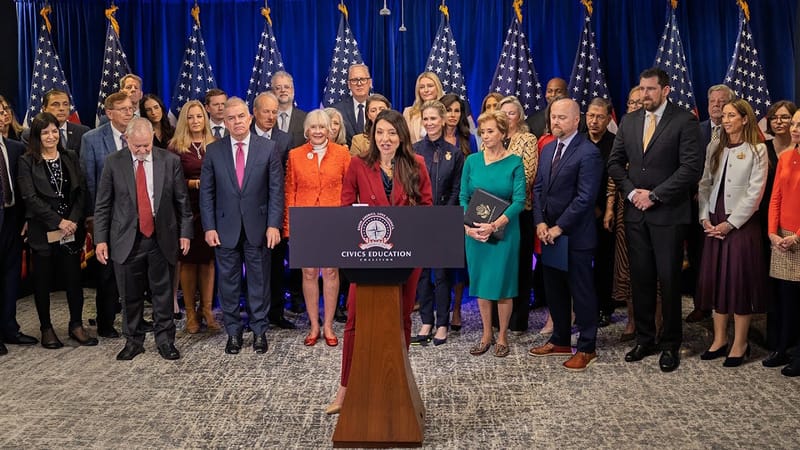Recent layoffs at Department of Education won't impact Wisconsin ... yet
According to the Wisconsin Department of Education, only 46% of new special education teachers stay in the profession after 7 years. There are currently four special education positions yet to be filled in the Appleton Area School District.

UPDATE: A federal judge on Wednesday, October 15, temporarily blocked President Donald Trump’s administration from firing workers during the shutdown saying the cuts appeared to be politically motivated and were being carried out without much thought.
The Department of Education just announced a second major round of layoffs. The ramifications of that may not be felt in Wisconsin for a while, but state administrators are concerned, especially when it comes to special needs children.
Practically the entire Office of Special Education and Rehabilitative Services (OSERS) was eliminated, which puts the oversight and funding for students with disabilities in jeopardy.
OSERS is primarily responsible for ensuring that states and schools uphold the civil rights of students with disabilities. The agency enforces the Individuals with Disabilities Education Act (IDEA), the law that ensures a free and appropriate education for children with disabilities, and funds special education services to the tune of about $15 billion.
Also at risk is the TRIO program, which provides academic and financial support for disadvantaged students who want to enter or continue in a postsecondary program.
In response to the recent cuts, the Wisconsin Department of Public Instruction (DPI) stated, “At this time, there is no impact on Wisconsin’s federal funding for the Individuals with Disabilities Education Act (IDEA) or TRIO programs. The DPI remains committed to ensuring all students continue to receive the support and services they need through their local school districts.”
Actions last month by the Trump administration have already had an impact, however. Of particular significance was the termination in September of the State Personnel Development Grant, a 5-year program totaling $10.5 million. It funded programs such as the special educator induction program, which supported 280 new special education teachers across the state in its first year. Wisconsin already suffers from a shortage of special education teachers.
According to the Wisconsin DPI, only 46% of new special education teachers stay in the profession after 7 years. There are currently four special education positions yet to be filled in the Appleton Area School District.
“These cuts are part of a larger pattern that puts students with disabilities’ right to a free and appropriate public education at risk,” said Beth Swedeen, Wisconsin Board for People with Developmental Disabilities (BPDD) Executive Director.
Also in September, the U.S. Department of Education abruptly ended funding for the Wisconsin Deafblind Technical Assistance Project (WDBTAP) in the middle of a five-year grant cycle. The funding serves 170 students, birth through 21, who live with both vision and hearing loss.
But the Wisconsin DPI recently announced it has secured new funding to continue critical services for deafblind children and young adults across the state.
"I am deeply grateful to the families, educators, and advocates who raised their voices and shared their powerful stories," Dr. Jill Underly, Wisconsin Superintendent of Public Instruction, said. "Because of their courage and persistence, the importance of the WDBTAP came into focus — and helped protect an essential lifeline for children and families across Wisconsin."
In a previous article published by the Dairyland Patriot, Dr. Julie Underwood, Dean Emerita of UW Madison School of Education, expressed concern about the direction the U.S. Department of Education was heading.
“Education laws are all underpinned by funding with strings attached,” she said. “That’s how the federal government started regulating things. All the progress we’ve made in humanizing and not discriminating against children with disabilities is because the federal government has held all the states to the same standard and required them to educate children with disabilities. You pull that linchpin, and all those rights come into question.”
Retired special education teacher Patti Clark-Stojke underscored the importance of special education programs and warned of the impact of continued cuts.
“What would happen is chaos," she said. "There's already protections in place, and when we lose those protections, what happens to the children? What happens when an educator, or a parent, or both feel like a child needs more, but it's not available?”






